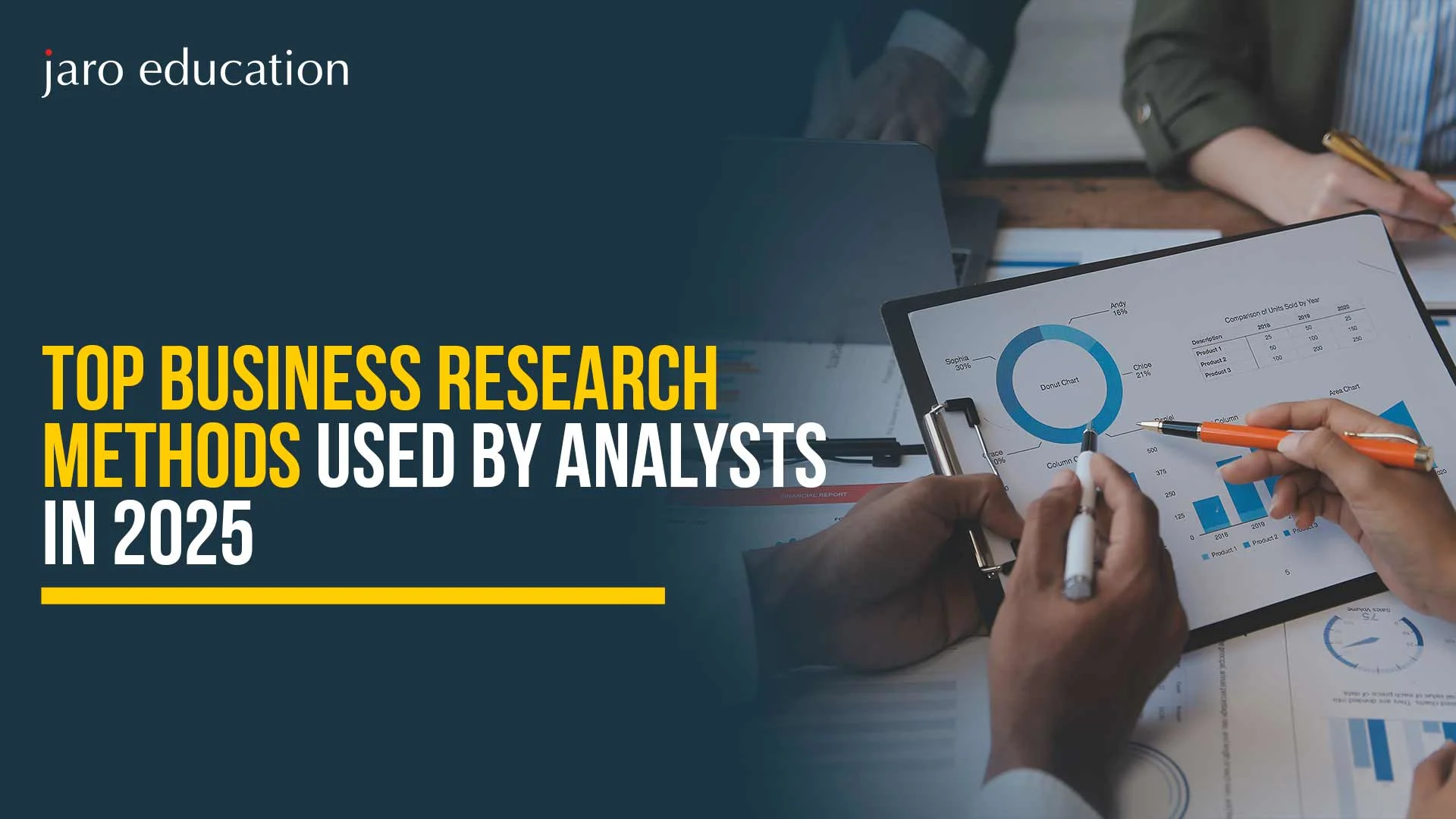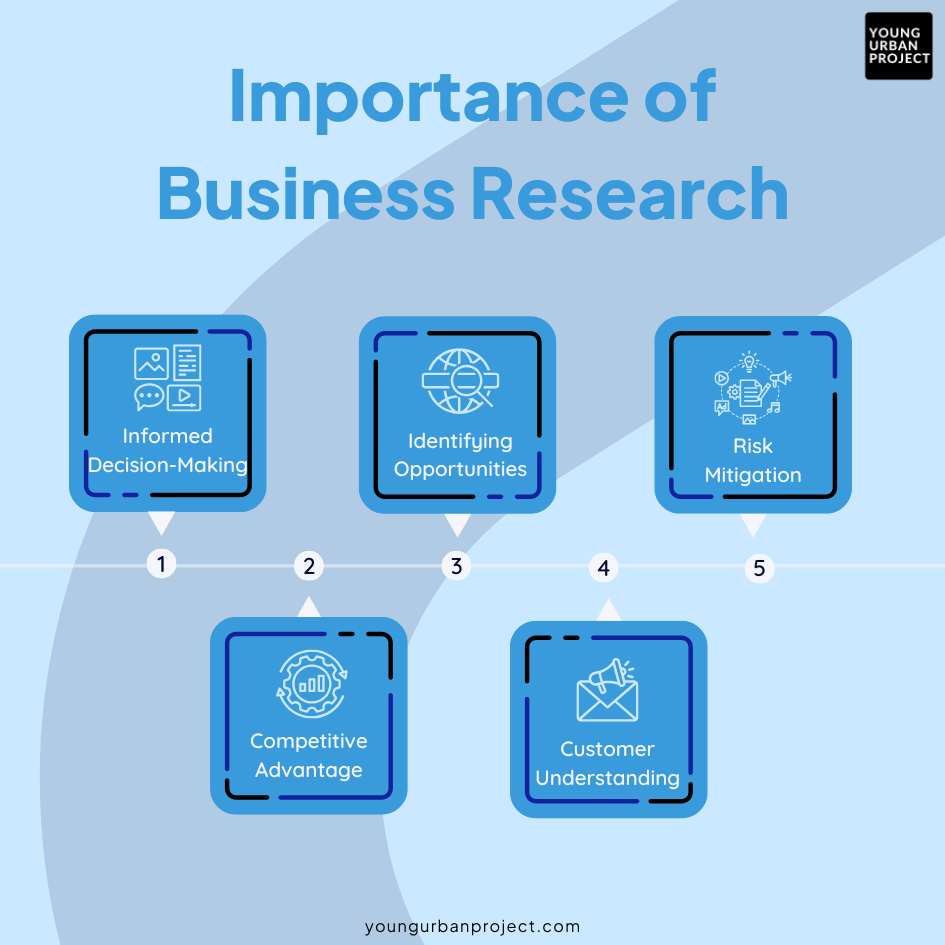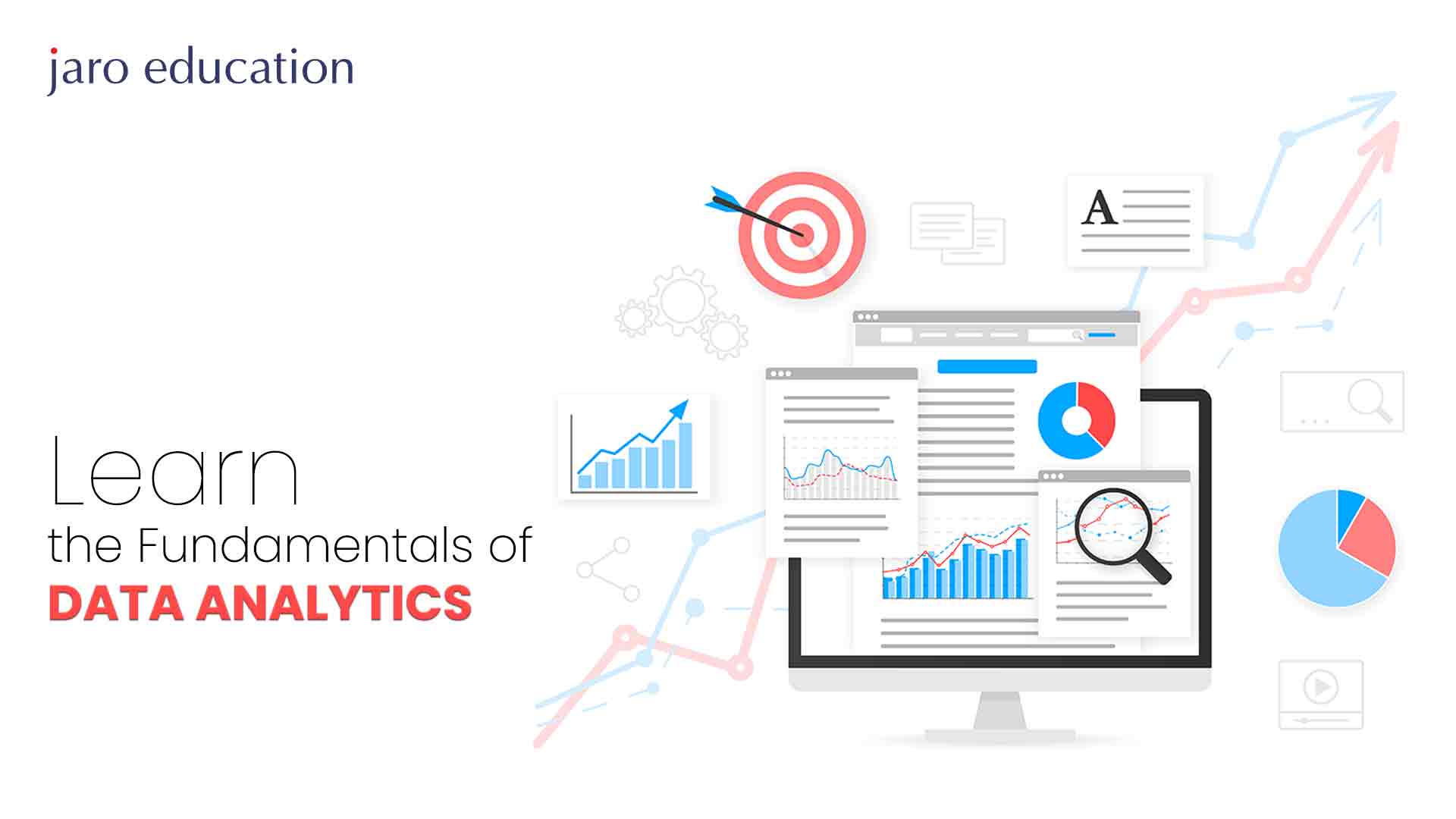Top Business Research Methods Used by Analysts in 2025
Table of Contents

Hustling with data-driven decision-making? Thinking about which is the best method for it? Then you are at the right place. This blog aims to uncover the advanced business research methods that are helping businesses across the globe to make the right data-driven decisions. Such calculative choices ultimately support innovation, strategy, and growth. Thus, data-driven decision-making is no longer a luxury in this realm of a changing business landscape; it’s necessary.

*youngurbanproject.com
Understanding Business Research
Business research is a systematic and multi-phase process that supports business decisions. The process involves data collection, analysis, and interpretation with the aim of exploring opportunities and identifying challenges. The entire process helps to gain actionable insights.
Now, with the integration of digital technologies, AI, and automation, business research methods have become more feasible and robust. In 2025, analysts are not only looking back at what has happened, but they are also forecasting what will happen next using these research methods.
Importance of Business Research Methods
Business research methods offer a structured approach to decision-making and problem-solving. However, analysts must select the appropriate research methods to ensure relevance, accuracy, and efficiency in this highly competitive environment. Here are the benefits of his methods for the organizations.
- Understanding market trends and consumer behavior
- Evaluating internal operations and performance
- Predicting future outcomes using data analytics
- Identifying areas for improvement and innovation
- Reducing risks by basing decisions on evidence
The Modern Business Research Process
Before diving into the research methods, it’s essential to understand the business research process. Here is the process at a glance –
- Problem Identification: Define the objective of the research clearly.
- Research Design: Select appropriate tools and frameworks for data collection and analysis.
- Data Collection: Gather relevant data from internal or external sources.
- Data Analysis: Use statistical or computational methods to derive insights.
- Interpretation: Make sense of the data and draw conclusions.
- Reporting: Present findings in an actionable format, such as dashboards or executive summaries.
- Decision Making: Apply insights to solve problems or improve processes.
Top Business Research Methods Used in 2025
Here are the top 12 business research methods that analysts use for their research work –
1. Surveys and Questionnaires
In spite of being one of the oldest business research methods, surveys are still relevant in today’s landscape. Now, the analysts use digital survey platforms. These platforms enable the quick gathering of opinions, feedback, and preferences from customers, stakeholders, or employees.
| Tools | Qualtrics, Google Forms, Typeform |
| Advancements | AI-generated dynamic questionnaires, real-time sentiment analysis |
| Use Cases | Customer satisfaction, market validation, and employee engagement |
2. Focus Groups and Interviews
Business analysts rely on structured interviews and group discussions for more qualitative insights. These types of business research methods enable a deeper understanding of what motivates consumers. Also, it helps to comprehend user experience and brand perception.
| Tools | Zoom, Dovetail, Lookback |
| Advancements | Automated transcription, voice emotion analysis, virtual focus groups |
| Use Cases | Product development, brand positioning, and UX research |
3. Observation and Ethnographic Research
Sometimes, analysts observe the users in natural environments. It helps them to understand the users better. For instance, they might observe how the users interact with products and services on an e-commerce site. So, it becomes possible to track them? They use analytics-driven tools for these. Here are the details.
| Tools | Eye-tracking software, behavioral analytics platforms |
| Advancements | AI-driven video analysis, real-time behavior logging |
| Use Cases | Retail layout optimization, app usability, workflow efficiency |
4. Experimental Research
It’s one of the business research methods that depends on testing the variables. After testing the variables, analysts determine cause-and-effect relationships. This test-based research method is also known as A/B testing. It’s popular in the fields of pricing strategies, product design, and marketing.
| Tools | Optimizely, Google Optimize, VWO |
| Advancements | AI-based multivariate testing, predictive modeling |
| Use Cases | Website design, ad performance, feature testing |
5. Secondary Data Analysis
Secondary data analysis is one of the most trustworthy business research methods that depends upon government publications, databases, company records, and industry reports. As these are credible data sources, they help analysts avoid acquiring false data and duplicating efforts. As a result, this research method saves a lot of time and resources.
| Tools | Statista, World Bank, internal CRM systems |
| Advancements | NLP for document mining, AI data categorization |
| Use Cases | Competitor benchmarking, market sizing, and economic forecasting |
6. Case Study Analysis
Case study analysis belongs to one of the detailed, comprehensive, and contextual business research methods. For instance, they investigate a single entity, such as a department, company, or market entry, for a case study. This type of research method is highly impactful for understanding complex issues in-depth.
| Tools | Notion, Microsoft Power BI, Miro |
| Advancements | Smart document summarization, voice-to-text transcription with emotion detection |
| Use Cases | Corporate strategy reviews, merger assessments, crisis management |
7. Content Analysis
By analyzing versatile content, the analysts identify sentiment, themes, and frequency. For these, they utilize qualitative content like reviews, social media posts, news, articles, and emails. For example, sentiment analysis tools help to detect positive/negative tones and emotional intensity behind the user’s opinions. Again, keyword frequency helps to measure the latest trends.
| Tools | Brandwatch, Lexalytics, Sprinklr |
| Advancements | Sentiment AI, text classification models |
| Use Cases | Social media analysis, brand reputation tracking, and customer feedback |
8. Data Mining and Big Data Analytics
As this digital world becomes flooded with tons of data, business analysts also use data mining and big data analytics as reliable business research methods. Big data tools help analysts discover correlations and patterns across massive datasets.
| Tools | Hadoop, Apache Spark, Tableau |
| Advancements | AI-based anomaly detection, real-time dashboards |
| Use Cases | Fraud detection, customer segmentation, operational analytics |
9. Predictive Analytics
Predictive analytics is one of the advanced business research methods. Utilizing statistical and machine learning algorithms, this method predicts future outcomes based on historical data. Businesses across various sectors utilize this method to enhance customer targeting, minimize churn, and optimize inventory management. Even this method helps to detect fraud before it happens.
| Tools | IBM SPSS, RapidMiner, Microsoft Azure ML |
| Advancements | Real-time prediction engines, explainable AI (XAI) |
| Use Cases | Demand forecasting, churn prediction, and inventory management |
10. Sentiment Analysis
The modern sentiment analysis goes beyond the basic polarity detection (positive/negative/neutral). It can detect emotional tone (joy, anger, frustration) and intent (purchase, complaint, advocacy). It even helps to analyze sarcasm. These help the analysts gauge public opinion about products, services, and even social issues.
| Tools | MonkeyLearn, Talkwalker, Hootsuite Insights |
| Advancements | Emotion AI, contextual sentiment modeling |
| Use Cases | Crisis monitoring, campaign performance, and customer service optimization |
11. Delphi Technique
Delphi techniques are one of the impactful business research methods that depend upon structured communication. For this process, a panel of experts answers multiple rounds of questions. After each round, the facilitator shares a summary of the responses, and the experts revise their responses. The goal is to converge on a consensus.
| Tools | Email platforms, expert panels, and digital feedback tools |
| Advancements | AI-assisted consensus tracking, collaborative survey platforms |
| Use Cases | Strategic forecasting, policy analysis, and risk assessment |
12. Benchmarking
It involves comparing a business’s processes, products, services, or performance metrics against those of competitors or industry leaders. By doing so, the organization identifies its performance gaps and best practices.
| Tools | Competitor analysis platforms, performance dashboards |
| Advancements | Automated benchmarking databases, AI-based peer analysis |
| Use Cases | Operational improvement, strategy refinement, and competitive intelligence |

*itm.ac.in
Types of Business Research Methods
Now, let’s understand the different business research types that the analysts apply for their regular tasks.
| Type | Description | Examples | Best for | Qualitative Research | Focuses on non-numerical data to understand context, emotions, and motivations | Focus groups, interviews, and case studies | Early-stage product development, branding, and human behavior research |
|---|---|---|---|
| Quantitative Research | Deals with numbers, statistics, and measurable data | Surveys, experiments, and data mining | Performance analysis, market sizing, A/B testing |
| Exploratory Research | Used when problems are not clearly defined. It helps uncover trends or ideas for future study. | New market entry study, customer pain point discovery, innovation ideation | New market entry, product ideation |
| Descriptive Research | Aims to describe characteristics of a population or phenomenon | Customer demographics report, employee engagement survey, and market size estimation | Market demographics, customer profiling |
| Causal Research | Establishes cause-effect relationships by manipulating variables | A/B testing and email campaign, price sensitivity experiment, ad spend vs. conversion rate analysis | Strategy testing, performance optimization |
Key Trends Influencing Business Research in 2025
There are several macro trends that are reshaping the way analysts conduct research. These trends are encouraging businesses to adopt more ethical and tech-integrated business research methods. These are –
| Trend | Description |
| Remote and Hybrid Work Models | Driving virtual research methods |
| Data Privacy Regulations | Changing how data can be collected and used |
| Sustainability Goals | Encouraging research around green practices and ESG (Environmental, social, and governance) compliance |
| Globalization and Localization | Requiring nuanced regional insights |
| Customer-Centric Business Models | Increasing demand for voice-of-the-customer data |
Best Practices for Effective Business Research
Here are some tips to enhance the impact of business research –
- At first, the analysts should start by defining clear objectives. Thus, they are required to start with some transparent research questions.
- After that, they must choose the right business research method.
- Before starting the research, they must ensure that the data is accurate and credible.
- It’s better to combine both qualitative and quantitative business research methods for deeper insights.
- Utilizing visual content, such as infographics and dashboards, will effectively communicate the findings.
- It’s mandatory to obey ethical standards and privacy laws.
- Keeping the research methods and tools up-to-date with the changing conditions.
Enhance Your Expertise with Professional Business Analysis Program
Want to upskill yourself with advanced business analytics? Looking for a professional program for this? Don’t worry. IIM Tiruchirappalli offers a Post Graduate Certification Program in Business Analytics. This program offers in-depth guidance on various business research methods. Additionally, the program provides hands-on training on how to conduct business analysis and apply insights for informed decision-making.
For this program, IIM Tiruchirappalli collaborated with Jaro Education. They are the marketing and technology partner of this institution. Jaro Education has over 15 years of excellence in academic service, offering online higher education. With their bird-eye vision and guidance, millions of learners have found the right career pathways and navigated to a bright future.
Here are a few highlights of this program.
- Explore business acumen with capstone projects
- Reliable direct-to-device learning (D2D)
- Case study-based learning
- Peer networking at campus immersion
Conclusion
As data becomes the backbone of corporate strategy, selecting the right business research methods becomes a significant strategy for success. By embracing advanced technologies, tools, the latest trends, and refined techniques, organizations can uncover valuable insights. Also, the analysts are using these different business research types to understand the current landscape of business research.
Frequently Asked Questions
What are business research methods?
Business research methods are the techniques that help organizations collect and analyze data to make impactful business decisions.
What is the difference between qualitative and quantitative research?
Qualitative research focuses on descriptive data and explores opinions. On the other hand, quantitative research prefers statistical analysis and numerical data.
Why is business research important for 2025?
Business research is necessary for data-driven decision-making for businesses. By utilizing the right business research methods, organizations gain insightful data and make valuable decisions based on this.
What tools are commonly used in business research today?
The common tools for business research are Tableau, Qualtrics, Google Forms, IBM SPSS, etc. Additionally, several AI platforms are available to assist with data analysis, prediction, and visualization.

















